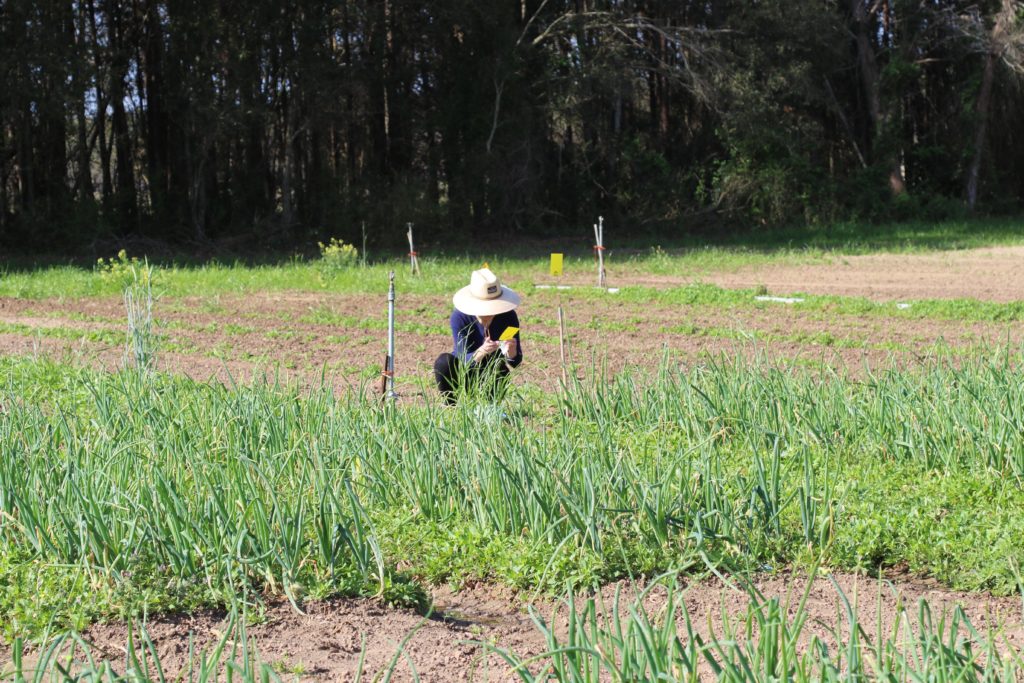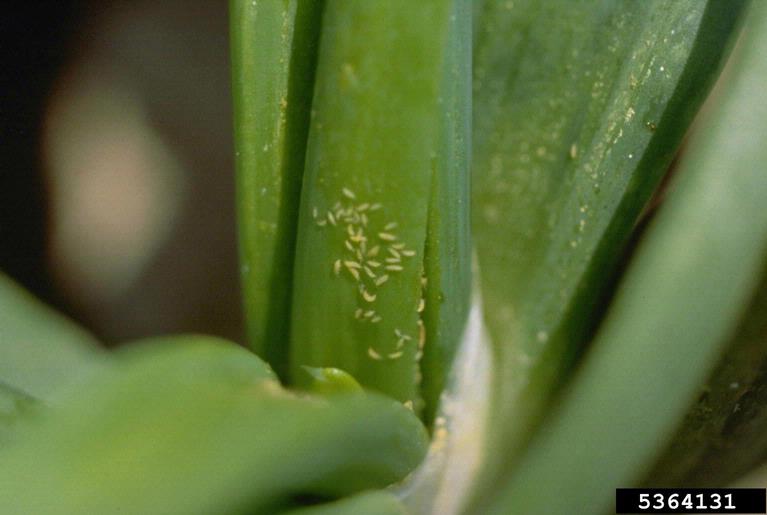By Bhabesh Dutta, Timothy Grey and Jason Schmidt
Georgia is known for many crops, and onion is one of the major vegetables produced. Organic onions are a developing commodity in the Vidalia region, but growers experience multiple pest and pathogen challenges. A multidisciplinary team of researchers at the University of Georgia (UGA) is working to improve sustainable, high-quality organic Vidalia onion production.
One issue challenging organic growers is weeds. In Georgia, onions are planted in November and December and then compete with cold-season weeds for space. Organic onion growers lack the conventional tools of pre-emergent herbicides or other herbicides for weed suppression. Onions are also unique to many crops by lacking a canopy to shade out weeds. Frequent weeding is required to prevent weeds popping up between the onion stems and competing for space.

BACTERIA IN WEEDS
While competition for space and nutrients is important, UGA researchers and their colleagues at Michigan State University have identified multiple bacteria species that can be hosted in weed species and then transmitted to onions. Pantoea is one such bacteria species that is the cause of center rot, a devastating disease that is truly a surprise when you cut into an onion and find it to be brown.
Common weeds can function as hosts of Pantoea, and pests like onion thrips (Thrips tabaci) are known to transmit Pantoea spp. to onion. Pantoea is the bacteria responsible for center rot, and thrips are tiny feathery-winged pests that can increase in number rapidly to cause damage to plants and transmit Pantoea. UGA research has revealed that weeding with a mechanical tine weeder and/or in combination with hand weeding not only reduces post-harvest center rot caused by Pantoea, but also leads to higher yields.

Photo by Whitney Cranshaw, Colorado State University, Bugwood.org
SURPRISING RESEARCH RESULTS
The results are encouraging but have an interesting twist. The most intensive weeding program proposed resulted in higher thrips activity in onion plots. This is likely a result of less confusion in finding onions when more host plants are present. Another observed result of weeding was higher parasitoid wasp activity when the mechanical weeding was applied (less intensive). The initial results suggest that insect biocontrol is stimulated by mechanical weeding, as the parasitoid activity in the non-weeded or weed-free plots was equivalent.
The weed pressure was very different between the treatments. The non-weeded treatments had much higher weed pressure. In the highly intensive hand-weeded treatment, there was much lower weed pressure to no weeds. Habitats such as weeds or diverse areas in agriculture are predicted to be good for beneficial insects such as parasitoids, so this result is unexpected. Whatever the case, thrips were higher in the most intensive weeding treatments. Yield was also highest in the most intensive weeding regimen.
This research suggests that for organics, weed management should certainly be a priority over attempting to kill the thrips. Thrips can be difficult to kill, and often growers use broad-spectrum insecticides that would damage the populations of biocontrol agents and other beneficial species in the system. Damaging beneficial communities often leads to unintended side-effects (higher secondary pests) by removing species that would be eating pests unable to be detected.
As growers build sustainable systems that are economically and environmentally forward-thinking, they must continue to plan for systems-level thinking and move beyond one-problem solutions. On the economics side, the use of a mechanical weeding strategy can greatly increase the speed of weeding while lowering costs. Hand weeding is quite expensive and labor intensive. The current research results suggest that a combined strategy of rapid mechanical weeding followed by fast hand weeding as an insurance policy to weed removal appears promising as a viable and cost-effective strategy for organic growers.
Acknowledgment: This work is supported by the U.S. Department of Agriculture National Institute of Food and Agriculture Organic Transitions Program (Grant: 2019-51106-30191).
Bhabesh Dutta is an associate professor and Extension vegetable disease specialist, Timothy Grey is a professor, and Jason Schmidt is an associate professor — all at the University of Georgia in Tifton.










